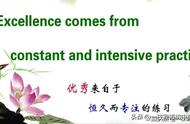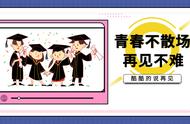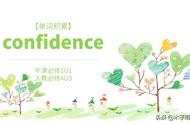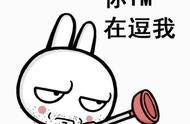鲁迅亲自设计的《呐喊》封面
因为这些幼稚的知识,后来便使我的学籍列在日本一个乡间的医学专门学校里了。我的梦很美满,预备卒业回来,救治像我父亲似的被误的病人的疾苦,战争时候便去当军医,一面又促进了国人对于维新的信仰。我已不知道教授微生物学的方法,现在又有了怎样的进步了,总之那时是用了电影,来显示微生物的形状的,因此有时讲义的一段落已完,而时间还没有到,教师便映些风景或时事的画片给学生看,以用去这多余的光阴。其时正当日俄战争的时候,关于战事的画片自然也就比较的多了,我在这一个讲堂中,便须常常随喜我那同学们的拍手和喝彩。有一回,我竟在画片上忽然会见我久违的许多中国人了,一个绑在中间,许多站在左右,一样是强壮的体格,而显出麻木的神情。据解说,则绑着的是替俄国做了军事上的侦探,正要被日军砍下头颅来示众,而围着的便是来赏鉴这示众的盛举的人们。
These inklings took me to a provincial medical college in Japan. I dreamed a beautiful dream that on my return to China I would cure patients like my father, who had been wrongly treated, while if war broke out I would serve as an army doctor, at the same time strengthening my countrymen's faith in reformation. I do not know what advanced methods are now used to reach microbiology, but at that time lantern slides were used to show the microbes; and if the lecture ended early, the instructor might show slides of natural scenery or news to fill up the time. This was during the Russo-Japanese War, so there were many war films, and I had to join in the clapping and cheering in the lecture hall along with the other students. It was a long time since I had seen any compatriots, but one day I saw a film showing some Chinese, one of whom was bound, while many others stood around him. They were all strong fellows but appeared completely apathetic. According to the commentary, the one with his hands bound was a spy working for the Russians, who was to have his head cut off by the Japanese military as a warning to others, while the Chinese beside him had come to enjoy the spectacle.

外文出版社1981年第一版
这一学年没有完毕,我已经到了东京了,因为从那一回以后,我便觉得医学并非一件紧要事,凡是愚弱的国民,即使体格如何健全,如何茁壮,也只能做毫无意义的示众的材料和看客,病死多少是不必以为不幸的。所以我们的第一要著,是在改变他们的精神,而善于改变精神的是,我那时以为当然要推文艺,于是想提倡文艺运动了。在东京的留学生很有学法政理化以至警察工业的,但没有人治文学和美术;可是在冷淡的空气中,也幸而寻到几个同志了,此外又邀集了必须的几个人,商量之后,第一步当然是出杂志,名目是取“新的生命”的意思,因为我们那时大抵带些复古的倾向,所以只谓之《新生》。
Before the term was over I had left for Tokyo, because after this film I felt that medical science was not so important after all. The people of a weak and backward country, however strong and healthy they may be, can only serve to be made examples of, or to witness such futile spectacles; and it doesn't really matter how many of them die of illness. The most important thing, therefore, was to change their spirit, and since at that time I felt that literature was the best means to this end, I determined to promote a literary movement. There were many Chinese students in Tokyo studying law, political science, physics and chemistry, even police work and engineering, but not one studying literature or art. However, even in this uncongenial atmosphere I was fortunate enough to find some kindred spirits. We gathered the few others we needed, and after discussion our first step, of course, was to publish a magazine, the title of which denoted that this was a new birth. As we were then rather classically inclined, we called it Xin Sheng(New Life).
《新生》的出版之期接近了,但最先就隐去了若干担当文字的人,接着又逃走了资本,结果只剩下不名一钱的三个人。创始时候既已背时,失败时候当然无可告语,而其后却连这三个人也都为各自的运命所驱策,不能在一处纵谈将来的好梦了,这就是我们的并未产生的《新生》的结局。
When the time for publication drew near, some of our contributors dropped out, and then our funds were withdrawn, until finally there were only three of us left, and we were penniless. Since we had started our magazine at an unlucky hour, there was naturally no one to whom we could complain when we failed; but later even we three were destined to part, and our discussions of a dream future had to cease. So ended this abortive New Life.

Call to Armsby Lu Xun (Simon & Schuster)
我感到未尝经验的无聊,是自此以后的事。我当初是不知其所以然的;后来想,凡有一人的主张,得了赞和,是促其前进的,得了反对,是促其奋斗的,独有叫喊于生人中,而生人并无反应,既非赞同,也无反对,如置身毫无边际的荒原,无可措手的了,这是怎样的悲哀呵,我于是以我所感到者为寂寞。
Only later did I feel the futility of it all; at that time I did not really understand anything. Later I felt if a man's proposals met with approval, it should encourage him; if they met with opposition, it should make him fight back; but the real tragedy for him was to lift up his voice among the living and meet with no response, neither approval nor opposition, just as if he were left helpless in a boundless desert. So I began to feel lonely.
这寂寞又一天一天的长大起来,如大毒蛇,缠住了我的灵魂了。
And this feeling of loneliness grew day by day, coiling about my soul like a huge poisonous snake.
然而我虽然自有无端的悲哀,却也并不愤懑,因为这经验使我反省,看见自己了:就是我决不是一个振臂一呼应者云集的英雄。
Yet in spite of my unaccountable sadness, I felt no indignation; for this experience had made me reflect and see that I was definitely not the heroic type who could rally multitudes at his call.
只是我自己的寂寞是不可不驱除的,因为这于我太痛苦。我于是用了种种法,来麻醉自己的灵魂,使我沉入于国民中,使我回到古代去,后来也亲历或旁观过几样更寂寞更悲哀的事,都为我所不愿追怀,甘心使他们和我的脑一同消灭在泥土里的,但我的麻醉法却也似乎已经奏了功,再没有青年时候的慷慨激昂的意思了。
However, my loneliness had to be dispelled, for it was causing me agony. So I used various means to dull my senses, both by conforming to the spirit of the time and turning to the past. Later I experienced or witnessed even greater loneliness and sadness, which I do not like to recall, preferring that it should perish with me. Still my attempt to deaden my senses was not unsuccessful—I had lost the enthusiasm and fervour of my youth.

《新青年》创刊号及更名后第一期
S会馆里有三间屋,相传是往昔曾在院子里的槐树上缢死过一个女人的,现在槐树已经高不可攀了,而这屋还没有人住;许多年,我便寓在这屋里钞古碑。客中少有人来,古碑中也遇不到什么问题和主义,而我的生命却居然暗暗的消去了,这也就是我惟一的愿望。夏夜,蚊子多了,便摇着蒲扇坐在槐树下,从密叶缝里看那一点一点的青天,晚出的槐蚕又每每冰冷的落在头颈上。
In S Hostel there were three rooms where it was said a woman had lived who hanged herself on the locust tree in the courtyard. Although the tree had grown so tall that its branches could no longer be reached, the rooms remained deserted. For some years I stayed here, copying ancient inscriptions. I had few visitors, there were no political problems or issues in those inscriptions, and my only desire was that my life should slip quietly away like this. On summer nights, when there were too many mosquitoes, I would sit under the locust tree, waving my fan and looking at the specks of sky through the thick leaves, while the caterpillars which came out in the evening would fall, icy-cold, on to my neck.
那时偶或来谈的是一个老朋友金心异,将手提的大皮夹放在破桌上,脱下长衫,对面坐下了,因为怕狗,似乎心房还在怦怦的跳动。
The only visitor to come for an occasional talk was my old friend Chin Hsin-yi. He would put his big portfolio down on the broken table, take off his long gown, and sit facing me, looking as if his heart was still beating fast after braving the dogs.
“你钞了这些有什么用?”有一夜,他翻着我那古碑的钞本,发了研究的质问了。
"What is the use of copying these?" he demanded inquisitively one night, after looking through the inscriptions I had copied.
“没有什么用。”
"No use at all."
“那么,你钞他是什么意思呢?”
"Then why copy them?"
“没有什么意思。”
"For no particular reason."
“我想,你可以做点文章……”
"I think you might write something..."
我懂得他的意思了,他们正办《新青年》,然而那时仿佛不特没有人来赞同,并且也还没有人来反对,我想,他们许是感到寂寞了,但是说:
I understood. They were editing the magazine New Youth, but hitherto there seemed to have been no reaction, favourable or otherwise, and I guessed they must be feeling lonely. However I said:
“假如一间铁屋子,是绝无窗户而万难破毁的,里面有许多熟睡的人们,不久都要闷死了,然而是从昏睡入死灭,并不感到就死的悲哀。现在你大嚷起来,惊起了较为清醒的几个人,使这不幸的少数者来受无可挽救的临终的苦楚,你倒以为对得起他们么?”
"Imagine an iron house without windows, absolutely indestructible, with many people fast asleep inside who will soon die of suffocation. But you know since they will die in their sleep, they will not feel the pain of death. Now if you cry aloud to wake a few of the lighter sleepers, making those unfortunate few suffer the agony of irrevocable death, do you think you are doing them a good turn?"
“然而几个人既然起来,你不能说决没有毁坏这铁屋的希望。”
"But if a few awake, you can't say there is no hope of destroying the iron house."
















